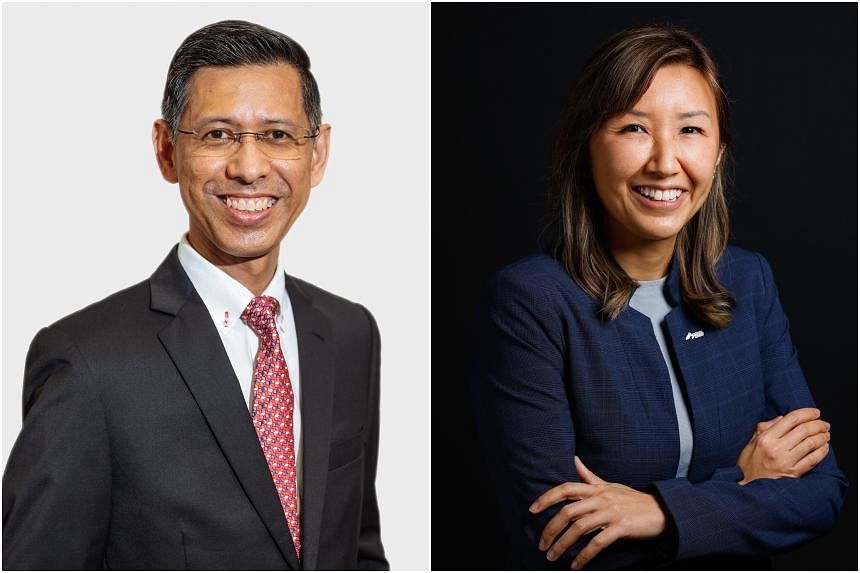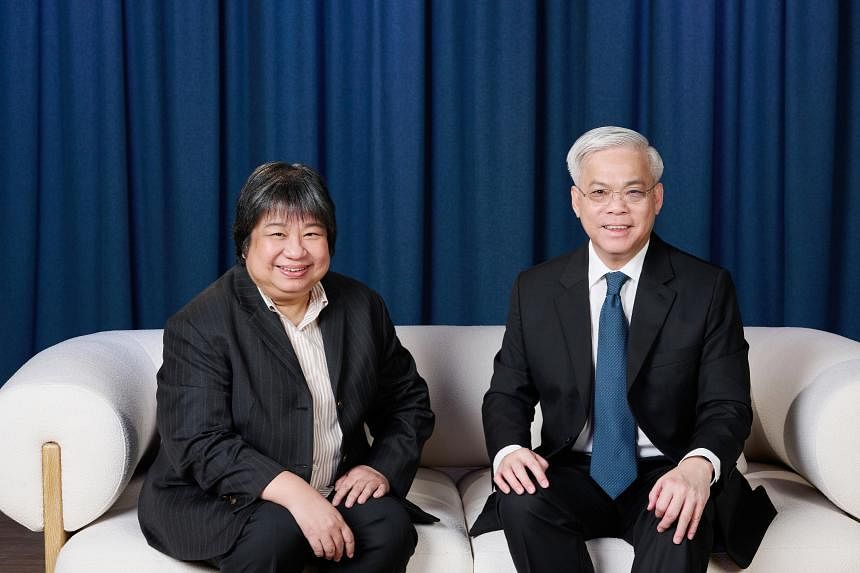- Joined
- Jul 25, 2008
- Messages
- 13,542
- Points
- 113
48% of S’poreans believe promoting women’s equality has become discrimination against men: Ipsos study

Around half of Singaporeans also fear speaking up for women's rights, the study found.
By Jonathan Yee - 7 Mar 2024
Women’s equality has gone too far, say 48% of Singaporeans in Ipsos study
Almost half of Singaporeans polled for an Ipsos study believe that promoting women’s equality has gone so far that it discriminates against men.Gen Z men are also more likely to hold this sentiment compared to Baby Boomers, Gen X, and Millennial men.
The study, which polled around 500 Singaporeans aged between 21 and 74 years, also found that the majority had no preference when it comes to the gender of their political leaders.
Ipsos study finds 48% of Singaporeans believe women’s equality has led to discrimination against men
The Ipsos study for International Women’s Day was released on Thursday (7 March) and conducted together with the Global Institute for Women’s Leadership at King’s College London.The study polled around 24,000 people across 31 countries, which includes about 500 Singaporeans.
Around two-thirds of Singaporeans — 62% — believe things have gone far enough when it comes to giving women equal rights with men in Singapore.
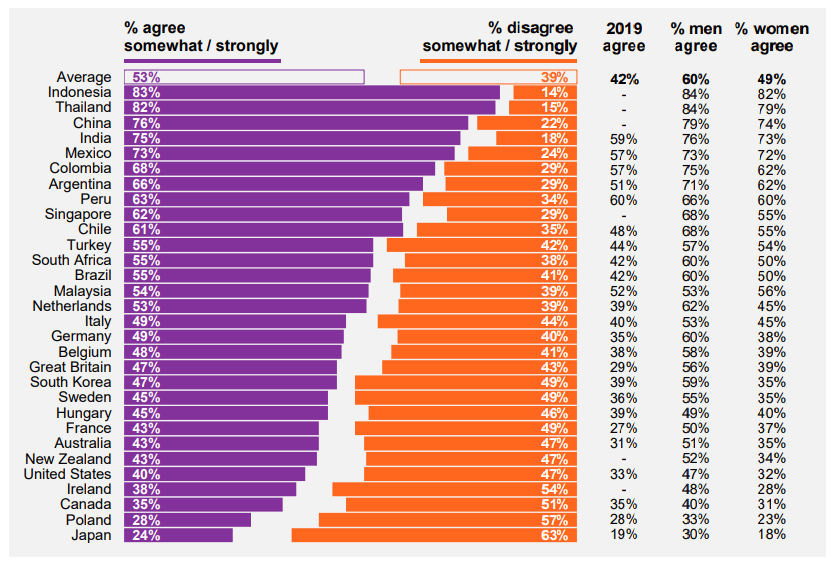
Source: Ipsos
68% of men polled felt this way, compared to 55% of women.
Ipsos also noted an “emerging sense of concern” in Singapore regarding the impact of gender equality on men.
This was borne in 48% of Singaporeans feeling things have gone the other way when it comes to promoting women’s equality into discrimination against men.
Singapore sits on the high end of the countries polled — 79% of people in Thailand feel this way, followed by 67% in India.
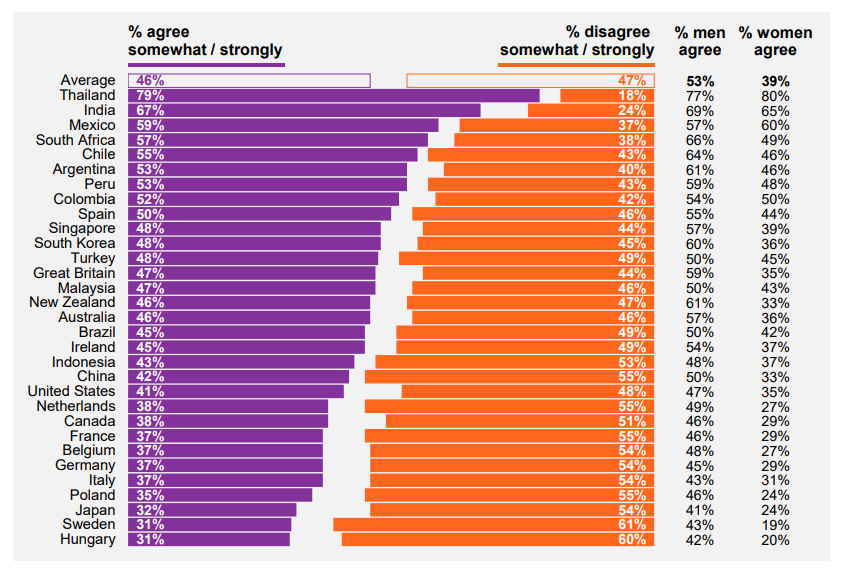
Source: Ipsos
IPSOS noted that 57% of Singaporean men have this sentiment, compared to 39% of women.
Fear of speaking up for women’s rights noted among 48% of Singaporeans
48% of Singaporeans also said they were scared to speak out for equal rights for women as they fear reprisal. Of these, 51% of women agree compared to 45% of men.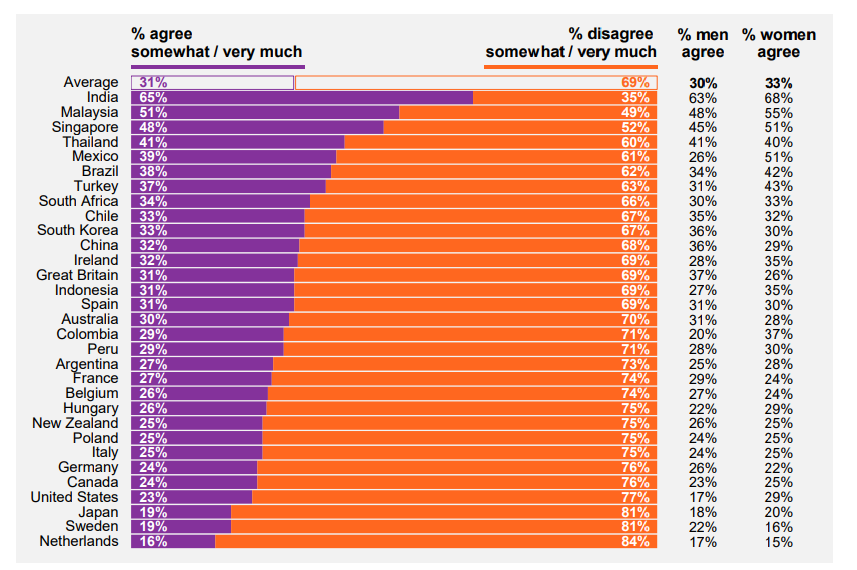
Source: Ipsos
“More than half (58%) of Singaporeans also agree that men are being expected to do too much to support equality,” Ipsos said.
Gen Z more likely to think women’s equality has gone too far
The study found that Gen Z males are more likely to think that women’s equality has gone too far, compared to Baby Boomers and Gen X.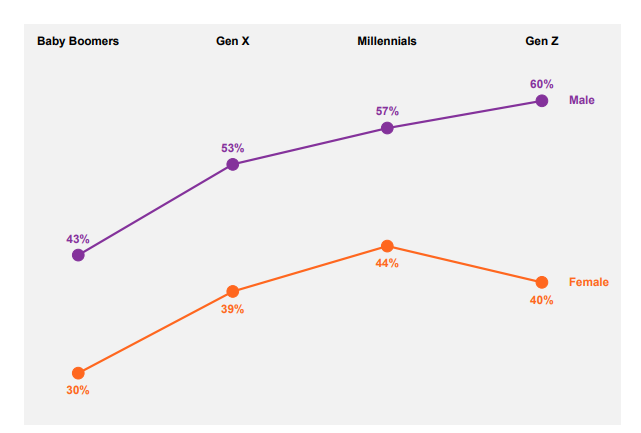
Source: Ipsos
Gen Z women, on the other hand, are less likely to think this, although the sentiment does not differ significantly between Gen X, Millennial, and Gen Z women.
Where inclusion in politics is concerned, 27% of Singaporeans would prefer a male political leader. However, just 7% would opt for a female political leader.
That said, 63% had no preference for either gender.
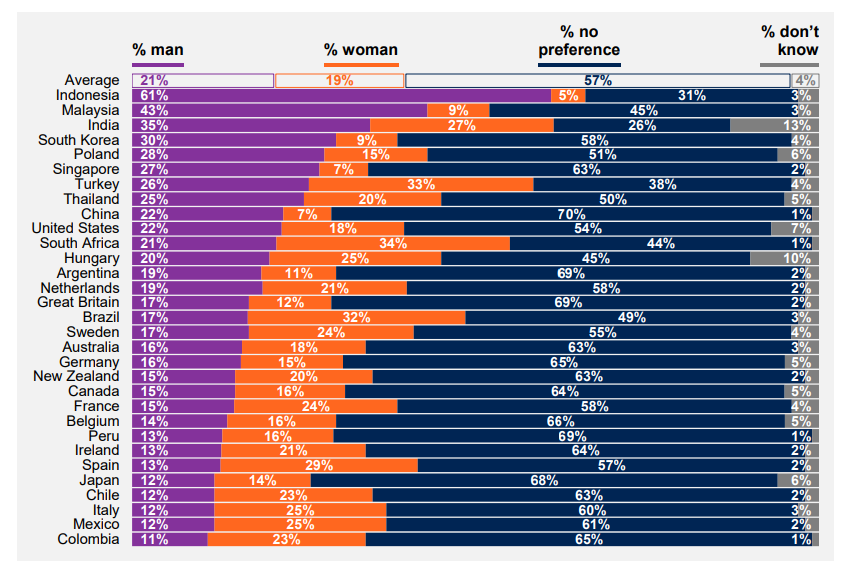
Source: Ipsos
Most Singaporeans also agree that both genders are equally competent in areas such as being honest and ethical, getting the economy on track, ensuring ethnic minorities are treated fairly, and benefiting those who are less advantaged.
Most believe male politicians tend to excel better in fighting crime, defending national security, and getting the economy on track.
Meanwhile, respondents tend to see female politicians as upholding fair treatment of women, uplifting the less advantaged, and treating those LGBT+ identities fairly.
Half have no preference when it comes to gender of boss
Though 36% of respondents demonstrated a tendency to favour male bosses over female bosses (10%), the majority (51%) were neutral about the gender of their bosses.Singaporeans were also mostly in agreement that both male and female leaders can create a financially successful and innovative company.
However, 16% think males are better, while only 8% believe females are better.
Katharine Zhou, Country Manager for Ipsos in Singapore, said there could be an unconscious bias when associating certain roles and capabilities between genders.
This is even though most have no preferences over their boss’ gender.
Sentiment warrants “further examination”
Ms Zhou said it was “revealing” to see that most believe women’s rights in Singapore had gone far enough.However, there is a “significant” gender difference in these perceptions, she said.
The sentiment espoused by 48% of respondents over women’s equality efforts discriminating against men also warranted further examination, she added, calling the result “notable”.
“It is also interesting to note the apprehension among Singaporeans about advocating for gender equality,” she said.
“This could be attributed to various socio-cultural factors and shows us that while we have made progress, there is still work to be done.”
She advocated for a more comprehensive dialogue on gender equality that “transcends familiar arguments” into an increased appreciation for emerging sentiments as found in the study.

